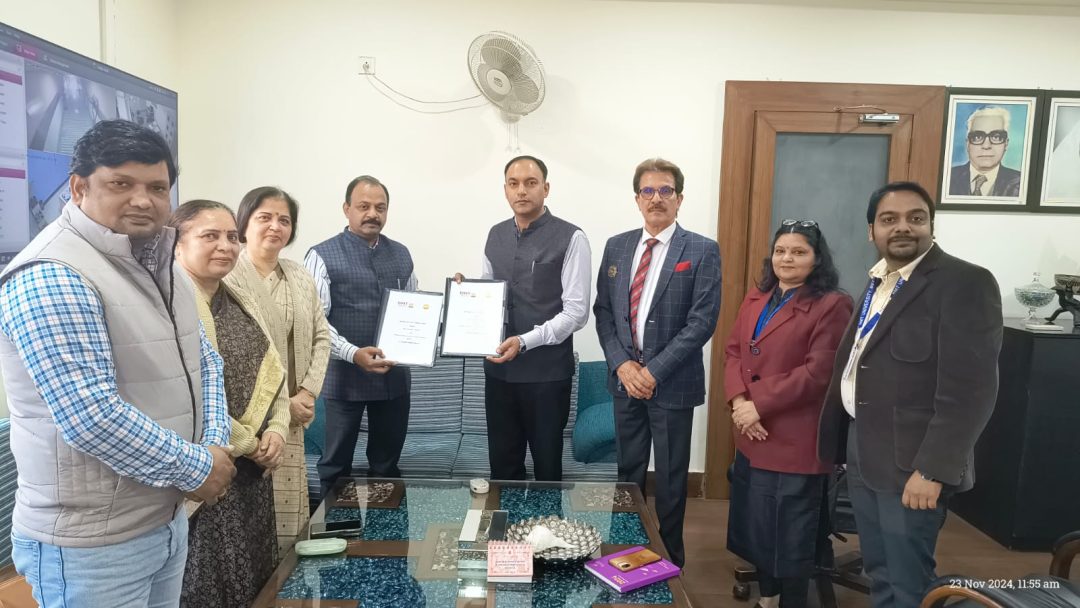Civil Engineering is a dynamic field that plays a crucial role in shaping the infrastructure of our modern society. It encompasses the design, construction and maintenance of various structures and systems including buildings, roads, bridges, dams and water supply networks. Civil engineers possess a diverse skill set, making them suitable for a wide range of career options within the field. This write-up will delve into some prominent career paths available to civil engineers and highlight the key responsibilities, educational requirements and potential growth prospects associated with each.
- Structural Engineer:
It is a specialised discipline within civil engineering that focuses on the design and analysis of structures. Structural engineers ensure the stability, strength and safety of buildings, bridges and other infrastructure projects. They work with architects, contractors and other professionals to develop innovative structural solutions. A strong background in structural analysis, mathematics and material science is necessary for this career. With experience, structural engineers can progress to leadership roles and become involved in large-scale projects.
- Transportation Engineer:
Transportation engineers are involved in the planning, design and maintenance of transportation systems, including roads, highways, airports and rail networks. They analyse traffic patterns, develop efficient transportation networks and implement measures to improve safety and reduce congestion. Transportation engineers often collaborate with urban planners and policy makers to enhance mobility and promote sustainable transportation options. Proficiency in traffic engineering, urban planning and transportation modelling is essential for this career. As cities expand and transportation need evolve there is growing demand for transportation engineers worldwide.
- Geotechnical Engineer:
It specializes in the field of soil, rock mechanics and earth structures. They assess soil properties, conduct geotechnical investigations, slopes, and retaining structures. Geotechnical engineers also evaluate the stability and safety of existing structures and develop mitigation strategies for natural hazards such as landslides and earthquakes. Strong analytical skills, knowledge of geotechnical software and a deep understanding of soil mechanics are vital for success in this field. Geotechnical engineering offers excellent prospects due to the ongoing need for infrastructure development and environmental sustainability.
- Environmental Engineer:
They play a critical role in ensuring sustainable and eco-friendly practices in Civil engineering projects. They address the environment impact of infrastructure development, manage waste disposal system, and assess the quality of air, water and soil. Environmental engineers also develop strategies to minimize pollution, conserve resources and promote environmental stewardship. A strong foundation in environmental science, water management and pollution control is necessary for this career. With growing concerns about climate change and sustainability, environmental engineering is becoming increasingly significant and offers opportunities to work on projects with a positive environmental impact.
- Construction Manager:
They oversee the planning, coordination and execution of construction projects. They work closely with architects, engineers, contractors and labours to ensure projects are completed on time within budget and according to specifications. Construction managers are responsible for project scheduling, cost estimation, procurement and quality control. They also manage project risk, maintain safety standards and facilitate effective communication among project stakeholders. Strong leadership skills, knowledge of construction techniques and excellent organizational abilities are key attributes for success in this field. Construction managers can advance to senior management roles and be involved in high-profile construction projects.
- Urban Planner:
They integrate civil engineering principles with social, economic and environmental factors to design and develop sustainable communities. They analyses land use patterns, develop zoning regulations and create plans that promote efficient land utilization, transportation and public spaces. Urban planners collaborate with architects, policy-makers, and community members to ensure urban development aligns with the needs and aspirations of the population. A multidisciplinary background encompassing urban design, environmental planning and policy development is essential for this career. Urban planning offers opportunities to shape the future of cities and improve the quality of life for communities.
- Bridge Designer:
They specialize in creating conceptual and detailed bridge designs using computer-aided design (CAD) software. They work closely with bridge engineer to translate design requirements into practical and efficient structures. Bridge designers need a strong understanding of engineering principles and familiarity with design codes and standards.

If you are interested in a career as a researcher of professor in the field of civil engineering. In this role, you would work in a research institution, government agency or private research and development (R&D) company. The main focus will be on conducting research projects related to civil engineering, exploring innovative solutions and advancing field’s knowledge. Here are some related potential career options:
- Research professor:
As a research professor an individual can work as a faculty member at a university or Research Institute focusing on conducting cutting edge research in civil engineering the person will be responsible for securing research grants, supervising graduate students, publishing research papers and collaborating with other researchers. This role allows you to contribute to the advancement of knowledge and civil engineering and mentor the next generation of engineers.
- Assistant associate full professor:
These positions are typically available at universities and innovate teaching under graduate and graduate courses in civil engineering. Advancement in this career path typically involves progressing from an assistant professor to associate professor.
- Government researcher:
Government agencies such as transportation department or environmental agencies often have research divisions focused on civil engineering. As a government researcher, an individual woodwork on projects related to infrastructure planning, safety, policy development or environmental impact assessment. This career path allows you to apply your expertise to address public concerns and contribute to policy decision.
Other career options like civil engineering researcher, research consultant, and research scientist are also available in the field of civil engineering. Research consultant often work on projects related to infrastructure development, sustainability, or emerging technologies and civil engineering. Research scientist often collaborate with engineers, policy makers and other stakeholders to address challenges in the field. These career options offer opportunities to conduct impactful research Kumar contribute to the development advancement of civil engineering knowledge, and make a difference in the field. Pursuing a Master’s or Ph.D. in civil engineering or related discipline is typically a common path to enter these research oriented roles.

For the above mentioned careers one has to complete graduation course which can be Diploma (3 years course) or B.Tech (4 years course) or both. After graduating for deep knowledge, the individual can do post-graduation in a particular field of civil engineering of interest. IIMT University, Meerut provides a diverse range of career options that cater to different interests and specialities. Whether one chooses to specialise in structural engineering, transportation engineering, geotechnical engineering, environmental engineering, construction management or urban planning, the University offers ample opportunities for personal and professional growth. As the demand for infrastructure and sustainable development continues to rise globally, civil engineers will play an increasingly vital role in shaping the world we live in. By pursuing a career in civil engineering, individuals have the chance to contribute to society, leave a lasting impact and make a difference in the built environment. IIMT University is a great choice if you are seeking for a top-notch civil engineering curriculum. It will help you advance your profession while ensuring a bright future with their quality curriculum, knowledgeable instructors and good career possibilities. So, come earn your degree from the best private university in Meerut U.P.













